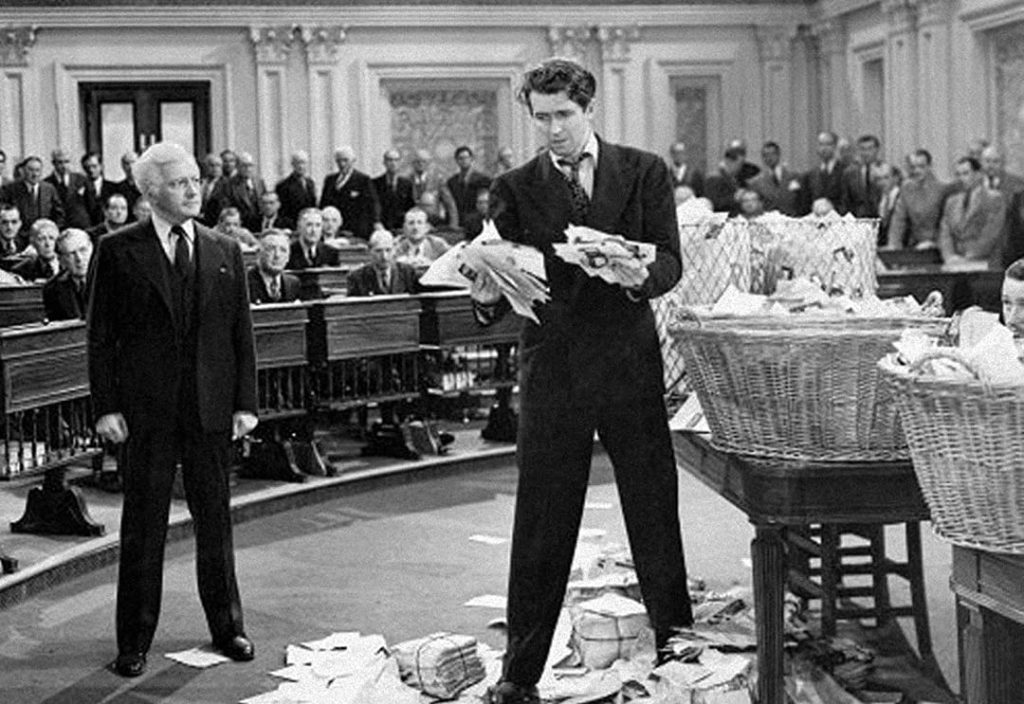Defenses of the filibuster require “forgetting” how all other legislatures work

Mitt Romney has a op-ed in defense of the filibuster that is, like all such arguments, self-refuting:
Not only is the filibuster absent in other parts of the federal government, but it’s also absent in any state government. For that matter, there is no routine supermajority in the design of any other democratic government in the world.
This is worth bearing in mind when we arrive at Romney’s next argument: Without a filibuster, policy would veer erratically between extremes:
“Consider how different the Senate would be without the filibuster. Whenever one party replaced the other as the majority, tax and spending priorities, safety net programs, national security policy and cultural interests would careen from one extreme to the other, creating uncertainty and unpredictability for families, employers and our partners around the world.”
If Romney is correct, then this erratic ping-ponging would plague the 50 state governments and all our democratic peers. You would think some of these states and foreign democracies, hampered by this feature of majority rule, would look enviously at the U.S. federal government and seek to copy its unique supermajority requirement.
Yet I know of no movement to copy the filibuster in any state or foreign government. Perhaps that is because the problem Romney says would occur with a majority-rule system is imaginary. If he has a different explanation, I would like to hear it.
It’s also worth mentioning that Romney erroneously suggests that “tax and spending priorities, safety net programs” are among the policies the filibuster prevents from veering erratically. In fact, Senate rules exempt taxes and spending from the supermajority rule. As a result, when Democrats win power, taxes on the rich and spending on the poor go up, while the reverse happens under Republican administrations. It’s very strange that Romney’s argument relies on the premise that this is a horror the filibuster would prevent.
The argument gets particularly ridiculous when claims that bills passed along party lines are uses…to defend vote suppression bills passed by party-line majorities:
The current pressure to scale back the filibuster is over election reform. Romney blames Democrats for refusing to consult with Republicans:
The Democrats’ latest justification for eliminating the filibuster is Republicans’ unwillingness to pass partisan election-reform legislation. Democrats have filed these bills numerous times over numerous years, almost always without seeking Republican involvement in drafting them.
It is true that in an ideal world, election reforms would win support among both parties. In fact, Joe Manchin has tried to win Republican support for a stripped-down version of a democracy-protection bill, but he has found no Republican takers.
A second pertinent fact ignored by Romney is that the reason Democrats are trying to pass election protections is that Republican-controlled state governments are cracking down on voting and putting control over the process into the hands of party apparatchiks. Because the filibuster exists only at the federal level, none of these measures have any Democratic support. So Romney’s paean to bipartisanship in election reform really means that Republican majorities in state government have a free hand to pass Trumpian measures to consolidate power over the process, while the Democratic Senate majority can only act with the permission of Trump’s Republican allies.
Complaining that the party of Shelby County isn’t being consulted on voting rights legislation makes you think that Romney has to be in on the joke, although being a Reasonable Republican in 2021 requires so much cognitive dissonance it’s hard to tell when the bad faith is delusional or knowningly dishonest.
There is no possible defense of the filibuster that isn’t just a support for reactionary political outcomes, but alas enough Senate Democrats are sufficiently uninterested in governing that there doesn’t have to be.


